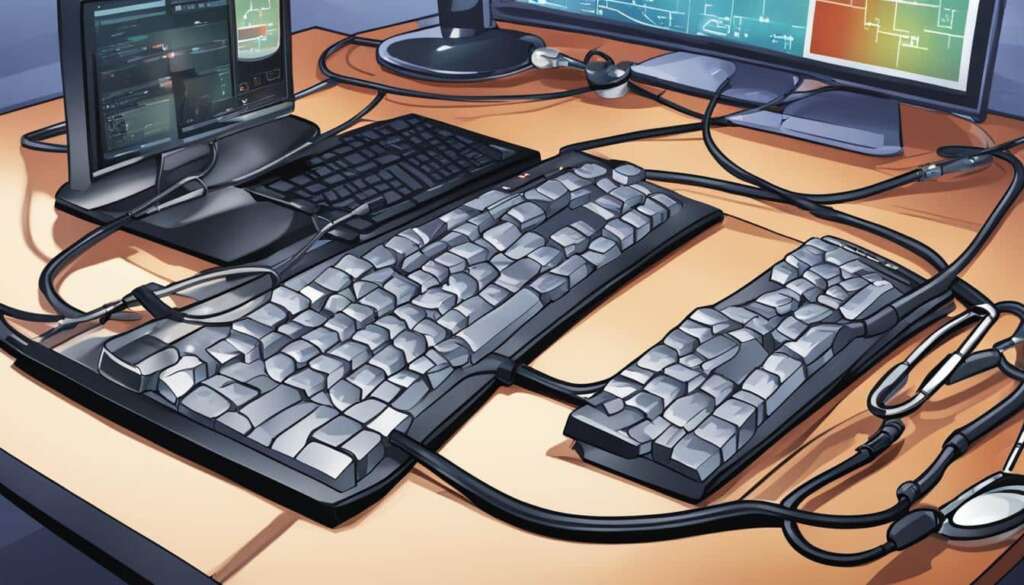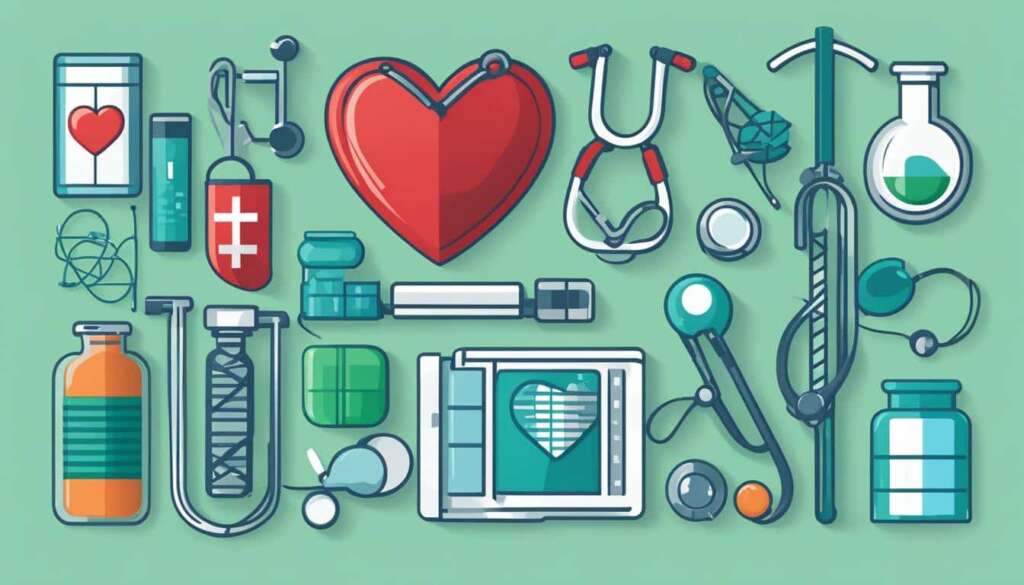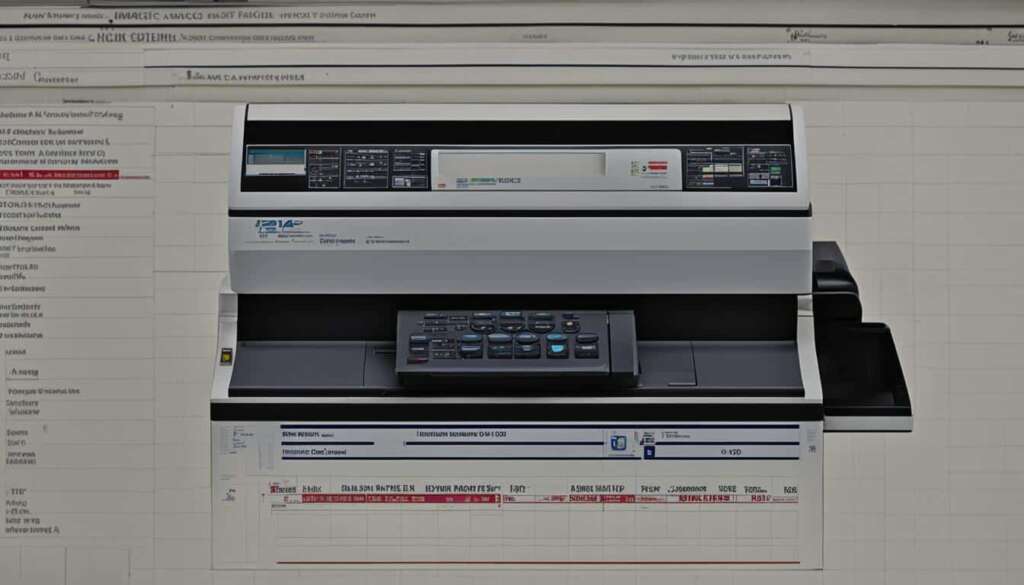Table of Contents
When it comes to medical terms, understanding their meanings is crucial for providing effective patient care and treatments. One common term you may come across is “PC,” but what does it actually mean in the medical context?
Firstly, “PC” can refer to Primary Care or Primary Health Care, which have distinct definitions. Primary Care focuses on providing comprehensive, continuous, and coordinated care to individuals, similar to the services provided by a family doctor. On the other hand, Primary Health Care encompasses a broader approach that includes both individual care and population-level public health functions.
Another usage of “PC” in medical abbreviations is as an indicator for taking medications after meals. This abbreviation is often found in prescriptions, emphasizing the importance of taking medications after eating. Adhering to this timing can help optimize the medication’s effectiveness and minimize certain side effects.
Lastly, there are various other medical abbreviations starting with the letter P. These abbreviations serve different purposes, such as assessing eye health with “PERRLA” or evaluating lung function with “PFT.” It’s essential for healthcare professionals to familiarize themselves with these abbreviations to ensure accurate communication and patient care.
In conclusion, understanding medical terms like “PC” is vital for providing the best possible patient care and treatments. Whether it’s Primary Care, medication administration timing, or other medical abbreviations starting with P, staying informed enables healthcare professionals to deliver optimal care and improve patient outcomes.
Primary Care vs Primary Health Care
Primary Care and Primary Health Care are often used interchangeably, but they actually have distinct definitions. Primary Care refers to the narrower concept of “family doctor-type” services delivered to individuals. It is focused on the provision of comprehensive, continuous, and coordinated care by a primary care provider.
On the other hand, Primary Health Care encompasses a broader approach to health policy and service provision. It includes not only individual care but also population-level public health functions. Primary Health Care is based on the principles articulated by the World Health Organization. It aims to address the social determinants of health, promote equity, and prioritize preventive care and health promotion.
| Primary Care | Primary Health Care |
|---|---|
| Focuses on individual care | Includes population-level public health functions |
| Delivered by a primary care provider | Encompasses a multidisciplinary approach |
| Provides comprehensive, continuous, and coordinated care | Aims to address social determinants of health |
While Primary Care mainly revolves around individual patient care, Primary Health Care takes a broader perspective that considers population health and addresses the underlying factors influencing health outcomes. Both play crucial roles in delivering effective healthcare and improving overall wellness.
Key Differences between Primary Care and Primary Health Care
- Scope: Primary Care focuses on individual care, while Primary Health Care includes population-level health functions.
- Providers: Primary Care is delivered by primary care providers, such as family doctors, whereas Primary Health Care involves a multidisciplinary approach.
- Comprehensiveness: Primary Care aims to provide comprehensive, continuous, and coordinated care, while Primary Health Care prioritizes addressing social determinants of health.
PC as an Abbreviation for After Meals
In medical contexts, the abbreviation “PC” can also stand for “after meals.” This abbreviation is commonly used in prescriptions or doctor’s orders to indicate the timing of medication administration. “PC” indicates that the medication should be taken or administered after a meal. It is important for patients and healthcare providers to understand this abbreviation to ensure proper medication adherence and efficacy. Taking medications after meals can help to minimize certain side effects and ensure optimal absorption.
Proper medication administration is crucial for achieving desired therapeutic outcomes. Some medications need to be taken with food to enhance absorption and reduce potential stomach irritation. Taking medication after meals can also help with the regulation of blood sugar levels for patients with diabetes. It is important to note that not all medications require administration after meals, so it is essential to follow healthcare provider’s instructions accurately.
“Always take medication after meals. This will ensure maximum absorption and minimize any potential side effects.” – Dr. Rebecca Johnson, MD
Patients should consult their healthcare providers if they have any questions regarding the timing or administration of their medications. Understanding the meaning of “PC” as an abbreviation for “after meals” can contribute to improved medication management and ultimately better health outcomes.
Other Medical Abbreviations Starting with P
In the medical field, there are several abbreviations starting with the letter P that are commonly used to indicate different medical terms or concepts. These abbreviations play a vital role in efficient communication and accurate documentation among healthcare professionals.
One such abbreviation is “PERRLA,” which stands for pupils equal, round, reactive to light and accommodation. This abbreviation is used to assess eye health and is particularly useful in evaluating the responsiveness of the pupils to external stimuli.
Another notable abbreviation is “PFT,” which stands for pulmonary function tests. These tests are employed to assess lung function and aid in the diagnosis and monitoring of respiratory conditions. By measuring various parameters, PFTs provide valuable insights into a patient’s respiratory health.
Furthermore, the abbreviation “PKU” refers to phenylketonuria, which is a metabolic disorder characterized by the body’s inability to properly process an amino acid called phenylalanine. This condition requires careful management and adherence to a specialized diet.
Other essential abbreviations starting with P include “po” for per oral or by mouth, “pr” for by rectum, and “prn” for as needed. These abbreviations are frequently utilized in medical prescriptions to specify the route of administration or frequency of medication.
In conclusion, familiarizing oneself with various medical abbreviations starting with the letter P is crucial for healthcare professionals. Having a comprehensive understanding of these terms enables accurate communication, efficient documentation, and ultimately ensures optimal patient care.
FAQ
What does the abbreviation PC mean in medical contexts?
In medical contexts, PC can have different meanings depending on the context. It can refer to Primary Care, Primary Health Care, or as an indication for taking medications after meals.
What is the difference between Primary Care and Primary Health Care?
Primary Care refers to “family doctor-type” services delivered to individuals, focusing on comprehensive, continuous, and coordinated care. Primary Health Care encompasses a broader approach to health policy and service provision, including both individual care and population-level public health functions.
What does PC mean when it comes to medication administration?
The abbreviation PC is used to indicate that medication should be taken or administered after a meal. It ensures proper medication adherence and efficacy by helping to minimize side effects and ensure optimal absorption.
Are there any other medical abbreviations starting with the letter P?
Yes, there are several other medical abbreviations starting with P. Some examples include PERRLA (used to assess eye health), PFT (used to evaluate lung function), PKU (referring to a metabolic disorder), po (for per oral or by mouth), pr (for by rectum), and prn (for as needed).













